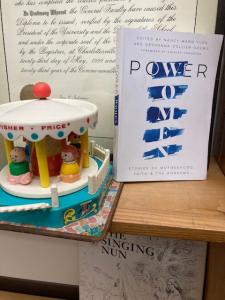Who doesn’t long for an integrated life? A life that holds together the varied offices, desires, communities, and works we each carry, rather than leaving them in rueful compartmentalized state?
With a nod to David Brooks’s Sidney Awards, that annual tribute to each year’s worthy articles, I call attention to Peter’s Meilaender’s essay from earlier this year, “Against the Integrated Life” in The Cresset. Meilaender offers good theological reason why we might put aside that holistic vision.
If you haven’t read Meilaender’s essay yet, today is a good time to fit it in, poised as we are in between the now and the not yet, celebrating Incarnation while awaiting the new year. The essay offers fair warning that efforts to get our whole lives in order are not likely to succeed.
Meilaender opts out of the Benedict Option, or at least that as plausible for most of us. He introduces a foolproof test for such all-in theories of how to live now: “any theory that culminates in the suggestion that I would be a morally better person if only I raised my own chickens, or that a society of chicken-raisers would be a morally better society, has taken a wrong turn somewhere.”
The wrong turn, he argues, is in a “critique of modernity as fragmented and alienating.” Those who look for an integrated life in name of Christian fidelity often favor bygone ways by overlooking real goods brought by modernity. Meilaender summarizes a vision he finds mistaken:
In a pre- or early modern world, most people still lived in stable communities that structured their lives, providing shared norms and a sense of place in an intelligible world. Their local communities, their work, their families and kinship networks, and their religious practices all overlapped and fit neatly inside one another, creating reinforcing structures of meaning. But the accelerating processes of modernity, especially over the last three centuries, gradually broke apart this coherent world…. People were left alienated, powerless, and lost, their lives fragmented among different spheres of family, leisure, work, faith, and citizenship (or subjecthood) that they no longer knew how to integrate.
Modernity effected dislocation, but Meilaender reminds that it also brought “differentiation and enrichment,” pluralism, opportunity, social mobility. So the way forward, the way to live faithfully into fragmented lives, is to do just that. The author credits Catholic social thought and Reformed notions of “sphere sovereignty” as offering ways to render what is due to God and Caesar, but finds better answer from Martin Luther. Luther saw that life on earth was fragmented inevitably, that efforts at holiness would be shot through with compromise.
But modernity is fragmented and alienating. What to do? I feel need for remedy perhaps more keenly than Meilaender seems to in this piece. I agree that raising my own chickens will hardly solve the problem.
It’s not that that an integrated life is unattractive to Meilaender. Rather, he affirms that we have no right to expect wholeness on this side of the end of time. Instead, if we plod along doing as serviceably as we can, “we may rest assured that the scattered fragments of our lives will be gathered up and fitted into place within a coherent whole. Then, at last—but not before—we will lead an integrated life.”













